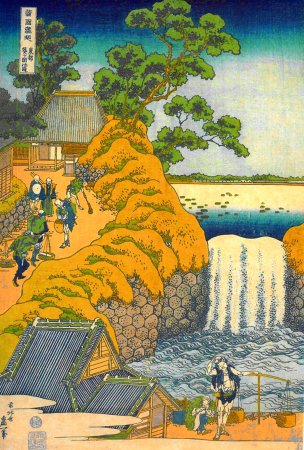or
How I Ate Gall Bladders While Writing My Diary


By C. W. Porter
The production of “diaries” was a growth industry in the post-war years.
In one of these efforts, the top floor of a house disappears behind a book case; the house is sold to an architect who does not realize that the top floor is missing; with many other magical events.
In war crimes trials, “diaries” are produced by something resembling magic; the conjuror takes a mimeograph, utters an incantation and - presto! reams of secondary evidence appear where none existed, usually in the form of “copies” or “translations”.
In the Tokyo Trial, the incantation goes something like this:
We offer in evidence IPS document no. 2707-K, which is the English translation of extracts from a diary...
“We are ordered to kill all the males we find... our aim is to kill or wound all the men...”
We offer in evidence IPS document no. 415, which is the English translation of extracts from a captured diary...
“27 Mar. 45 (correct Japanese year: 20th year of Showa)... we went out to kill the natives. It was hard for me to kill them because they seemed like good people. Frightful cries of the women and children...”
We offer in evidence IPS document no. 426, which is the English translation of an extract from a captured diary...
“My turn was the second one... I bayonetted him... after bayonetting them we covered them with soil”.
We offer in evidence IPS document no. 2776, which is the English translation of extracts of a captured notebook diary...
“7 Feb 45 - 150 guerillas were disposed of tonight...”
We offer in evidence IPS document no. 428, which is an English translation of an excerpt taken from a loose, handwritten sheet containing a battle report...
“All were either stabbed or shot to death...”
We submit in evidence IPS document no. 2749, which is an English translation of an extract from a bound, printed and mimeographed file containing censored papers...
“It was pitiful, so I couldn’t watch. They also shot them and speared them to death with bamboo lances. Indeed the Japanese army does extreme things...”
We offer in evidence IPS document no. 2777, which is the English translation of an excerpt from the bound handwritten notebook diary dated 14 November 1943 to 17 April 1945...
“All inhabitants of the town were killed...”
We offer in evidence IPS document no. 425, which is the English translation of extract from a captured bound diary-notebook dated July 1944...
“Every day is spent hunting guerillas and natives. I have already killed over 100. The naivete I possessed at the time of leaving the homeland has long since disappeared. Now I am a hardened killer and my sword is always stained with blood. Although it is for my country’s sake, it is sheer brutality. May God forgive me! May my mother forgive me!”
We offer in evidence IPS document no. 2707-H, which is the English translation of a captured Japanese “Memorandum”... which mentions and makes admission and confirmation of the practice of cannibalism...
“... those who eat human flesh (except that of the enemy) knowing it to be so, shall be sentenced to death as the worst kind of enemy against mankind...”
We tender in evidence IPS document no. 2850, which is an extract from statements made by prisoner of war YANAGAZIWA, Eiji...
“Cannibalism...” (pp. 12,565-77).
Extract from diary, apparently belonging to an officer, unit unknown.
Vivisection took place...
“... to prevent their escaping a second time, pistols were fired at their feet, but it was difficult to hit them. The two prisoners were dissected while still alive by Medical Officer YAMAJI and their livers taken out, and for the first time I saw the internal organs of a human being. It was very instructive...” ... (p. 14,140) (SPAC “translation”).
The following is the document of which Justice Pal said, “We were not given the captured diary... I hope it was written in Japanese”):
“The head, detached from the trunk, rolls in front of it... a superior seaman of the medical unit takes the Chief Medical Officer’s sword and... turns the headless body over on its back, and cuts the abdomen open with one clear stroke... not a drop of blood comes out of the body...” (Maybe he was anaemic. - Ed.). “If ever I get back alive it will make a good story to tell, so I have written it down” (pp. 14,075-80).
(Speaking of “confessions” in foreign languages...):
“They made much reduced official reports in the Japanese language and characters which we could not read but were nevertheless compelled to sign, without being told the contents. Afterwards, these reports turned out to be our “confessions”, in which we were charged with the queerest facts...” (p. 13,680-1).
(In the following case the “witness” read about his “testimony” in the newspaper and showed up to repudiate his affidavit entirely and testify for the defense).
“I was summoned to the U.S. Military Government in Saipan and examined by a young American Lieutenant... He knew Japanese and interrogated me in that language. His Japanese was not fluent, but good enough to make himself understood. He wrote down my statement in English and had me sign it but he did not translate it and read it to me... I do not understand spoken English. I can only understand written English if I have an English-Japanese dictionary before me and considerable time to ponder over the written material. On the original document is a statement by Ensign Charles D. Shelton which reads as follows:
“I swear that I am familiar with both the English language and the Japanese language and that before the above statement was signed I read same in the Japanese language to the person who signed same”.
“This statement is in error. A translation of the English document was not given to me either orally or in written form. The manner in which I was questioned is as follows: the American lieutenant asked me questions in Japanese to which I responded. Then, writing with a fountain pen on a piece of paper, he appeared to be making a statement. The interview lasted about 20 minutes, at the end of which time the Lieutenant gave the handwritten piece of paper to a Navy enlisted man who typed out the piece of paper which I ultimately signed...”
Cross examination by the prosecution:
Q: “How did things proceed; what happened?”
A: “In accordance with some notations made on a memo paper he asked questions... he apparently had some kind of list of questions...”
Q: “Did you ask what it was you were being asked to sign?”
A: “I asked no questions... I learned about it for the first time when
it appeared in the newspapers in October last year”. (Testimony of
WAKAMATSU Makoto, 22 August 1947, pp. 26,532-42).

The Tokyo War Crimes Trial by C.W. Porter
Japs Ate My Gall Bladder by C. W. Porter
Translation of the above into Russian NEW IN RUSSIAN
The Myth of German Atrocities Against Prisoners by C.W. Porter
The Myth of Japanese Atrocities Against Prisoners in Mukden by C.W. Porter
Japan was Provoked into a War of Self Defense by C.W. Porter
The Myth of Japanese Atrocities at Nanking by C. W. Porter
Affidavits in Foreign Languages by C.W. Porter
Recommended site for Japanese revisionism: http://www.jiyuushikan.org/e/
See also:
Scarlet Memorial: Tales of Cannibalism in Modern China by Yi Zheng
Return to ARTICLES PAGE
Return to CONTENTS PAGE